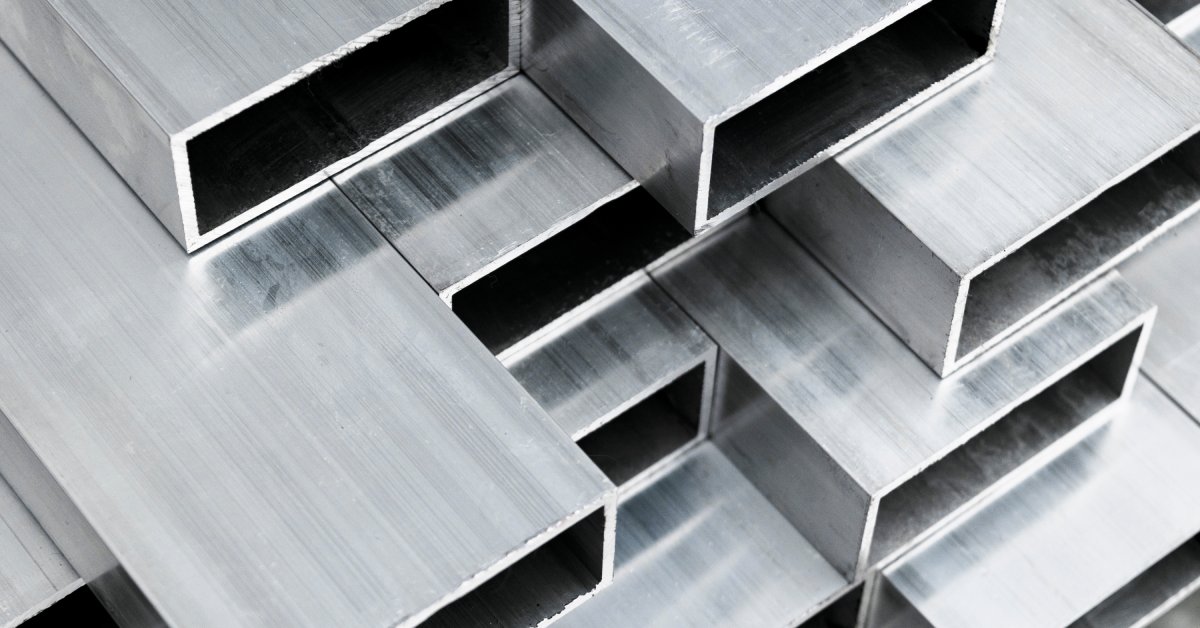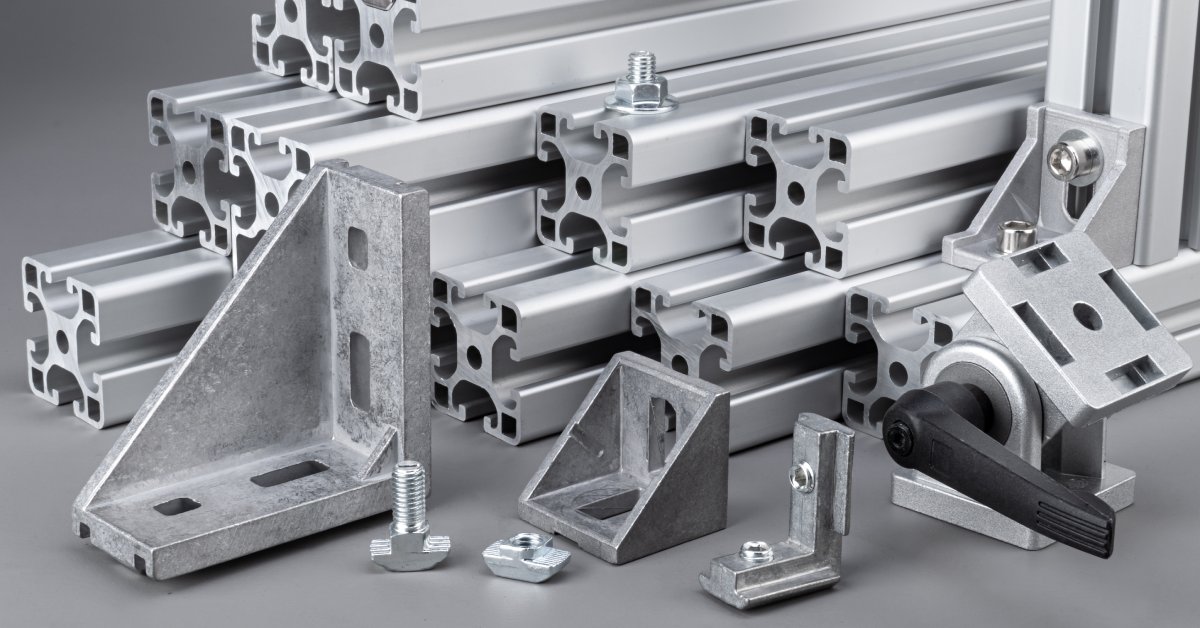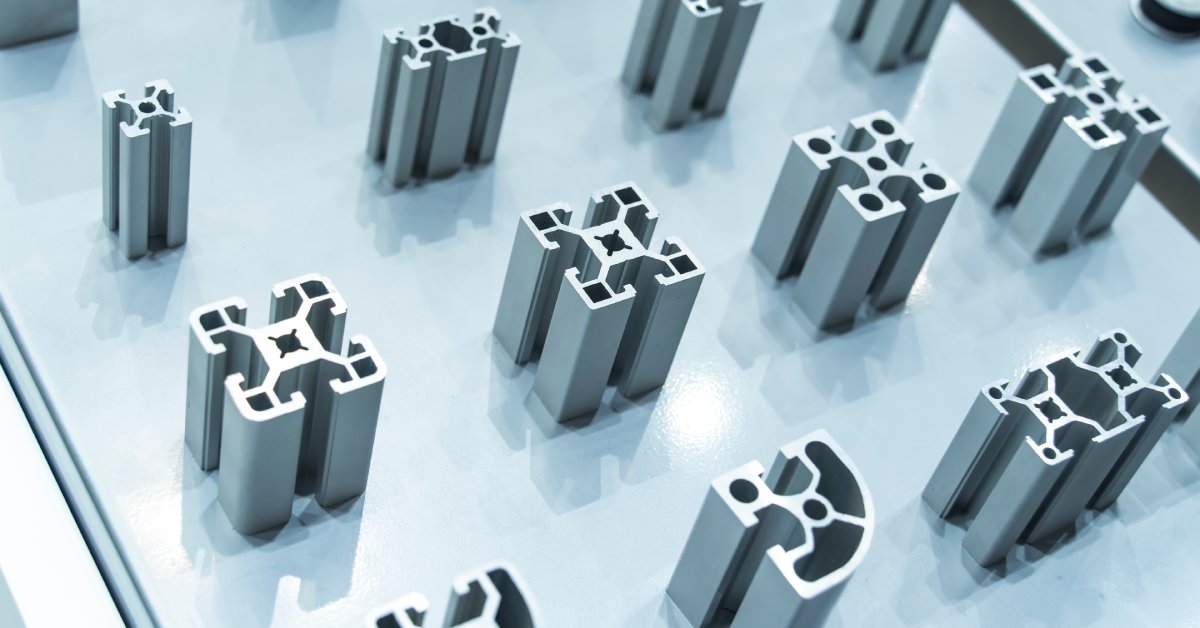
When selecting materials for industrial applications, operations managers face a critical decision that impacts both immediate performance and long-term costs. Aluminum is a premium material due to its strength, durability, and cost-effectiveness. What makes aluminum a strong and durable choice?
Aluminum is renowned for its extraordinary balance of lightweight composition and impressive strength, making it a great material for industrial applications. Understanding the science behind aluminum provides a deeper insight into its benefits and potential.
Pure aluminum offers moderate strength, but alloying with copper, magnesium, and silicon creates materials with tensile strengths exceeding 70,000 PSI. This engineered strength rivals that of steel while maintaining a significantly lower weight.
Aluminum’s crystalline structure allows for exceptional flexibility under stress. This characteristic is especially valuable in dynamic industrial environments where equipment experiences variable loads and vibrations.
Aluminum naturally forms a protective oxide layer when exposed to oxygen, creating a barrier that prevents further corrosion. This passive protection system eliminates the need for extensive coating systems typically required for steel components, thereby reducing maintenance costs and extending service life.
In harsh industrial environments that contain chemicals, moisture, or salt, aluminum’s corrosion resistance translates to measurable operational benefits. Steel components lack the same corrosion resistance, making aluminum a better option.
Countless operations require durable equipment and structural components that can withstand demanding conditions and prolonged use. Aluminum is a leading choice for industrial applications due to its ability to maintain performance in the field.
Temperatures can vary on the job. Some workers require their equipment to function properly in freezing cold or blistering heat. Fortunately, aluminum maintains its structural integrity across a wide temperature range, from cryogenic applications to elevated temperatures.
Heat is no problem for aluminum since the material’s thermal conductivity allows for quick heat dissipation. This protects sensitive components and reduces thermal stress in machinery. Equipment housing made from aluminum can extend component life by maintaining optimal operating temperatures and improving efficiency.

Industrial equipment undergoes repeated loading cycles, which can cause material fatigue over time. Aluminum alloys demonstrate superior fatigue resistance compared to many alternative materials, particularly when designed for specific stress patterns.
Real-time monitoring data from manufacturing facilities reveal that aluminum components maintain their structural integrity through millions of load cycles, exhibiting predictable performance degradation that enables proactive maintenance scheduling. This predictability supports lean manufacturing principles by minimizing unexpected failures.
Manufacturers can benefit from using aluminum throughout their operations. From initial production to end-of-life recycling, aluminum delivers a compelling return on investment (ROI) by reducing energy consumption and lowering maintenance costs.
Initial prices may make aluminum seem more expensive than other materials; however, the total cost of ownership presents compelling advantages. Transportation costs are lower due to its lighter weight, and the installation process is simpler.
Workers can see a lower installation time for aluminum compared to steel, which directly impacts project timelines and labor costs. The material’s flexibility and lightweight design enable precision manufacturing with tighter tolerances, reducing assembly complications and improving system performance.
Between the corrosion resistance and durability, manufacturers don’t have to worry about aluminum maintenance in comparison to other materials. Energy consumption benefits also contribute to operational cost savings. Lighter aluminum components cause the system as a whole to consume less energy to move, whether in conveyor systems, robotic applications, or mobile equipment.
Aluminum’s versatility and performance make it an important material for manufacturing lines as well as large-scale processing plants. Its lightweight yet durable properties support efforts to make operations more efficient and sustainable.
Molds for manufacturing equipment made of aluminum enable the precise manufacturing of geometries required for current industrial equipment. Due to its lightweight and good thermal properties, it withstands multiple uses with the same results.
Tool and die applications benefit from aluminum’s thermal properties, which provide more consistent temperature control during production processes. This thermal stability directly impacts product quality and reduces defect rates in precision manufacturing operations.

Industrial frameworks constructed from aluminum offer exceptional strength while facilitating easier modification and expansion. The material’s compatibility with standard fastening systems and welding techniques simplifies maintenance and upgrades, making it a versatile choice for various applications.
Modular aluminum framing systems enable rapid reconfiguration of production lines, supporting agile manufacturing strategies. Facilities can see a reduction in line changeover time when using aluminum structural components compared to traditional steel frameworks.
Aluminum’s weight advantages make it particularly valuable in material handling applications. Conveyor systems, lifting equipment, and mobile platforms constructed from aluminum require less power to operate while maintaining superior load-bearing capacity.
The material’s non-magnetic properties eliminate interference with sensitive electronic equipment, making it ideal for environments full of precision instrumentation or automated systems with electromagnetic compatibility.
When integrating new materials or technologies into industrial operations, careful planning and evaluation are essential for successful implementation. Operations managers must consider a variety of factors, including initial investment and its impact on safety and efficiency. Understanding these considerations can minimize any risks of introducing new equipment and maximize the advantages of aluminum.
Successful aluminum implementation requires understanding the material’s unique properties and designing accordingly. Unlike steel, aluminum benefits from different joint designs and stress distribution patterns that maximize strength while minimizing weight.
Collaboration with engineering teams familiar with aluminum design principles ensures optimal performance. Appropriate alloy selection based on specific application requirements prevents over-engineering while maintaining safety margins appropriate for industrial environments.
As you can see, aluminum is a strong and durable choice for industrial applications due to its many advantages. For operations managers seeking to optimize performance while controlling costs, aluminum represents a strategic material choice that delivers immediate benefits and long-term value.
To unlock the full potential of aluminum solutions and optimize your operations, partner with A-Line Automation for custom aluminum manufacturing. Our custom aluminum manufacturing capabilities can create unique products tailored to your industry. As a premier aluminum manufacturer and distributor, we offer high-quality equipment. Contact us today to discover how to utilize aluminum in your facility.